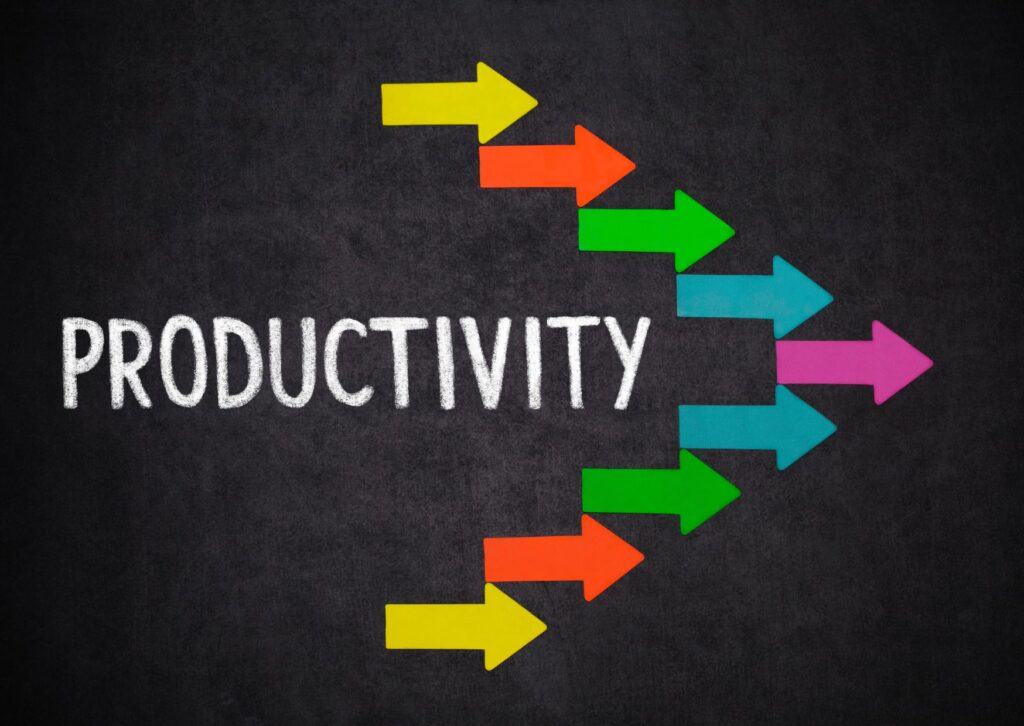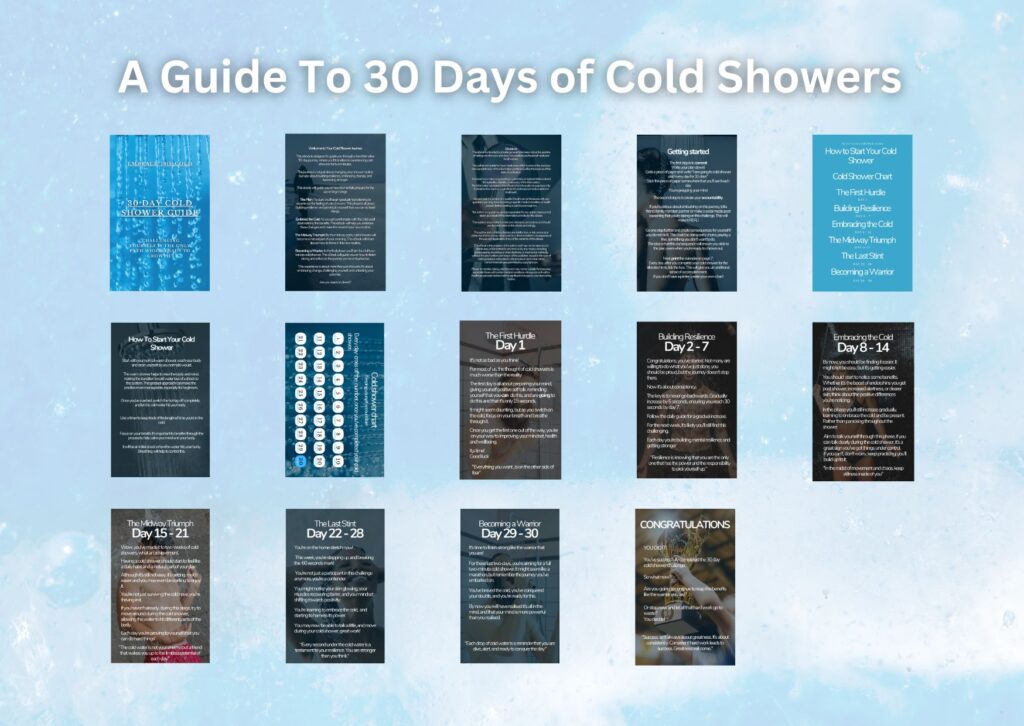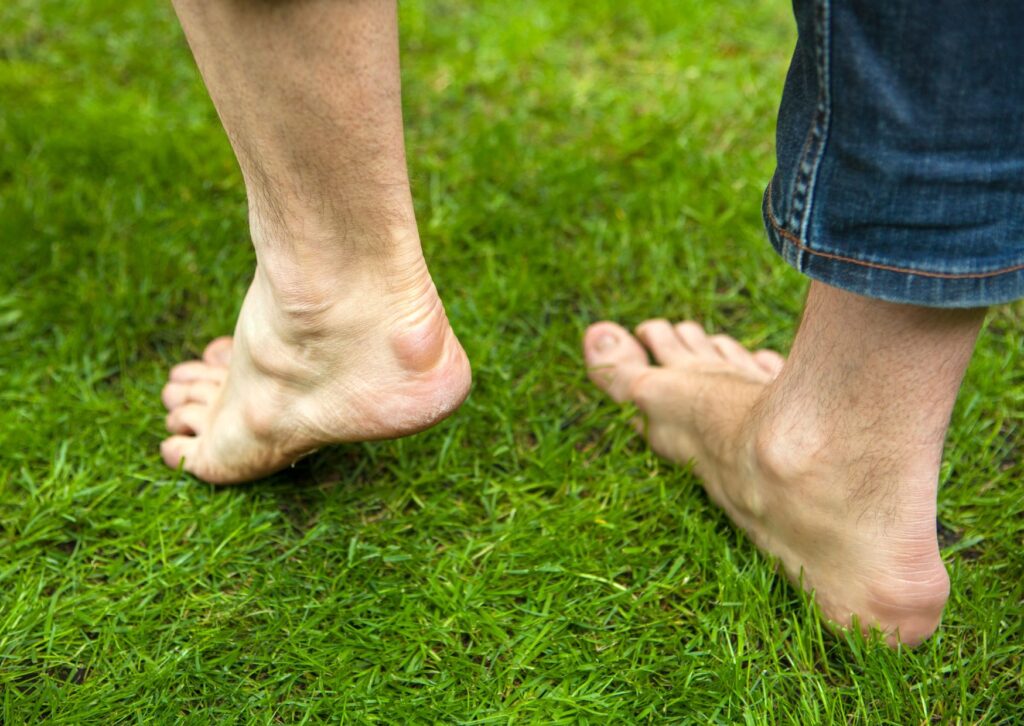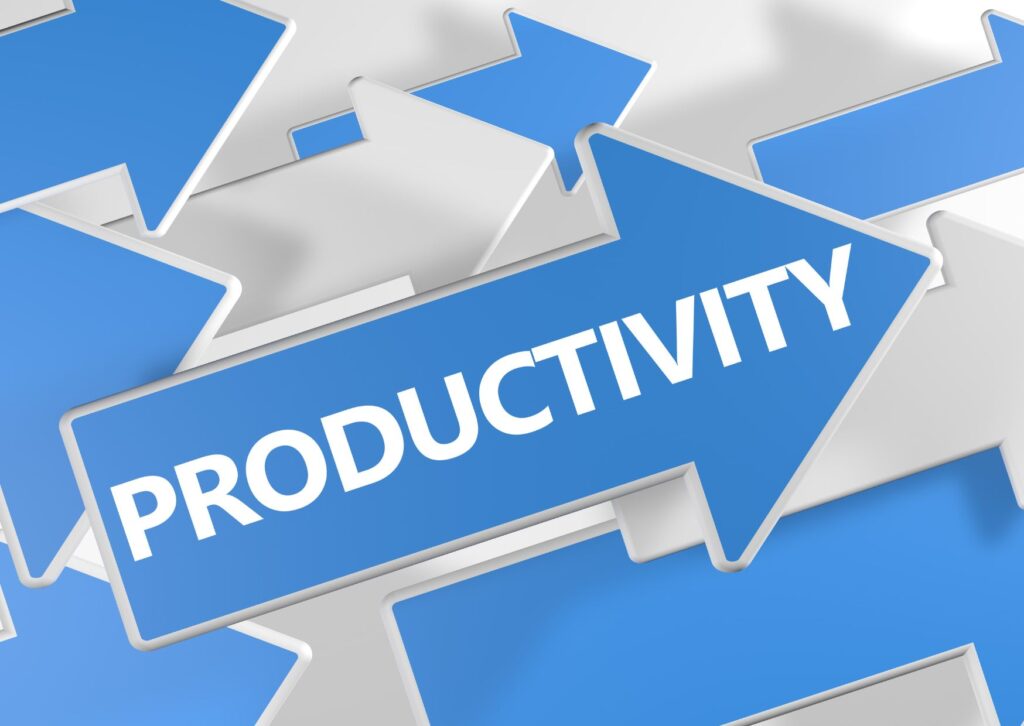Boost Productivity with These 5 Unconventional Habits
If you’re looking for fresh, innovative ways to boost your productivity and transform your work-life balance, you’ve landed in the right place.
We’re exploring how the power of everyday habits—some rather unexpected—can play a significant role in personal growth and job satisfaction.
From bracing cold showers to reconnecting with the earth, it’s time to uncover the secret productivity superpowers that these unconventional habits hold.
Contents
5 Unconventional Habits to Boost Productivity (and how to get started)
Why Do Habits Help Boost Productivity?
How Long Does It Typically Take to Form a New Productivity-Boosting Habit?

5 Unconventional Habits to Boost Productivity (and how to get started)
1. Cold Showers
Cold showers might sound chilling at first, but they’re a great, invigorating way to kick-start your day.
When you immerse yourself in cold water, your body experiences a rush of blood flow that serves as a natural energiser, waking you up instantly and promoting a higher state of alertness.
Cold showers also help improve circulation, potentially boosting your overall immunity and vitality.
They are known to increase mental clarity, and some people even report mood enhancement.
Beyond physical benefits, facing the initial discomfort of cold showers can boost your resilience and mental fortitude, essential traits for productive days.
Why not check out our blog on “30 Days of Cold Showers to Increase Productivity“
How to get started: Start slow. It’s not about torturing yourself with icy showers from day one.
Begin by ending your regular warm shower with 15 seconds of cooler water.
Over time, extend this cool-down period, gradually reducing the water temperature each day.
The goal is to get to a point where you can comfortably take a full shower with cold water.
Remember, this is not a competition, but a personal journey towards enhanced productivity.
It might take some time to adapt, and that’s okay.
If you’d like to start your cold shower journey, check out our eBook “A Guide to 30 Days of Cold Showers”

2. Power Naps
In our fast-paced, always-on society, the humble power nap is a surprisingly effective productivity booster.
These short bursts of sleep—usually between 10 and 20 minutes—can revitalise the mind, enhancing alertness, mood, and cognitive functioning.
Contrary to some beliefs, power napping is not a sign of laziness but a scientifically-backed practice used by many high performers, from athletes to CEOs.
How to get started: First, find a quiet, comfortable spot where you won’t be disturbed.
This could be a comfortable chair, a couch, or even your car.
Aim to nap for 10-20 minutes—any longer and you risk entering deep sleep, which can leave you feeling groggy.
The optimal time for a power nap is typically in the early to mid-afternoon, when most people naturally experience a drop in energy levels.
Remember, the goal is not to substitute night-time sleep but to supplement it and give yourself a little energy boost to power through the rest of the day!

3. Practicing Silence
In our noisy, bustling world, there’s something profoundly powerful about the practice of silence.
Far from being empty or void, silence is filled with potential.
It encourages reflection, fosters creativity, and provides a reprieve from the constant barrage of information we face daily.
When we intentionally carve out periods of silence, we give our minds the opportunity to unwind, declutter, and refocus, making us more productive in the long run.
How to get started: Choose a time each day when you can sit quietly without distractions.
Early morning or late evening often works best for many.
Turn off your devices, choose a comfortable place where you won’t be disturbed, and just sit in silence.
You don’t need to meditate or focus on anything specific—just let your mind wander.
Start with just 5 minutes a day and gradually increase the duration as you get comfortable with the practice.
You may be surprised by how refreshing these moments of quiet can be!

4. Brain Dumping
Ever feel like your brain is overflowing with thoughts and tasks, like too many tabs open on a computer?
That’s where brain dumping comes in.
This habit involves pouring out all your thoughts, ideas, worries, and to-dos onto a piece of paper or a digital document.
It’s like a spring cleaning for your mind, clearing mental clutter, reducing stress, and helping you focus on what truly matters.
When your mind is less cluttered, you can process information better and become more productive.
How to get started: Grab a notebook or open a new document on your computer.
Set aside 10-15 minutes each day for this activity – it could be in the morning, during lunch, or before bed.
Write down everything that comes to your mind.
It could be a chore you need to do, an idea for a project, a worry that’s been nagging you, or even a random thought.
Don’t worry about organising or making sense of them right now, the aim is just to get them out of your head.
Once you’re done, you’ll likely feel a sense of relief.
Over time, you can review these thoughts and organize them, turning them into actionable tasks or addressing any concerns that arise.
This simple practice of brain dumping can free up mental space, helping you focus and boost your productivity.

5. Earthing
Earthing, also known as grounding, is the practice of connecting with the earth’s natural electric charge.
Walking barefoot on grass, sand, or soil can help align your body’s energy with that of the earth.
It might sound a bit unconventional, but some studies suggest that earthing can reduce stress, improve sleep, and boost well-being—all factors that indirectly enhance productivity.
By reconnecting with nature, you get a chance to reset, refresh, and regain focus.
Incorporating earthing into your routine is pretty straightforward.
How to get started: Find a patch of grass, a sandy beach, or a dirt path near you. Kick off your shoes and go for a barefoot walk.
Feel the textures beneath your feet, the coolness of the grass, the warmth of the sand, the ruggedness of the soil.
Start with just a few minutes a day, gradually increasing the time as you feel comfortable.
If you live in a city and don’t have easy access to natural spaces, consider investing in an earthing mat.
These are conductive devices that you can stand or sit on indoors to replicate the effects of natural earthing.
Remember, this practice is about more than productivity—it’s about rekindling your relationship with nature and finding moments of peace in your day.

If you’re someone who works from home, why not check out our blog on “10 ways to increase productivity working from home“
Why Do Habits Help Boost Productivity?
Habits are like automatic scripts running in our minds.
They are actions we perform on autopilot, without the need for conscious thought or effort.
For instance, think about brushing your teeth or tying your shoelaces.
You don’t think about each step, right? You just do it!
The magic of good habits is that they free up our mental energy.
When we have established routines, we save time and brainpower because we’re not constantly making decisions about what to do next. The habit takes over!
What does this mean for productivity? Well, imagine your brainpower is like a battery.
Each decision you make depletes a little bit of that energy.
So, when you have good habits in place, you’re preserving that energy for the big stuff, the tasks that need your focus and creativity.
Plus, good habits create consistency, and consistency leads to progress.
Small, regular actions add up to big results over time. It’s like water dripping on a stone—it might not seem like much at first, but over time, even water can wear away stone.
So, remember, habits are more than just routines.
They’re the building blocks of productivity and success.
Start cultivating good habits today and watch your productivity soar!

How Long Does It Typically Take to Form a New Productivity-Boosting Habit?
When you’re trying to build a new habit, you might wonder, “How long will it take until this becomes second nature?”
You may have heard it takes 21 days, but that’s not the whole story. This common belief is a bit of a simplification and can often lead to unrealistic expectations.
In reality, the time it takes to form a habit can vary significantly from person to person and depends heavily on the complexity of the habit and the person’s existing routine.
A study from University College London found that, on average, it takes about 66 days for a habit to become automatic.
But, even in this study, there was a lot of variation, with habits taking anywhere from 18 to 254 days to form.
The key takeaway? Don’t get hung up on a specific timeline.
Focus on consistency and commitment, not the clock. Some days will be easier than others, and that’s okay.
The important thing is to keep going. Building habits is more of a marathon than a sprint. It’s all about slow and steady progress towards a more productive you.

Embracing these unconventional habits may be challenging initially, but remember that great things never come from comfort zones.
Just as a river cuts through a rock not because of its power but its persistence, small consistent actions can lead to massive changes over time.
Whether it’s the invigorating rush of a cold shower or the meditative peace of practicing silence, the power to boost your productivity lies within your grasp.
So, get ready to step outside the box and experience the extraordinary impact these habits can have on your life.
Remember, your journey to increased productivity isn’t a race—it’s a marathon. And every step, no matter how unconventional, brings you closer to the finish line.
Author
Tyler Lowe – Health & Wellbeing Speaker
BSc Sport & Exercise Rehabilitation


